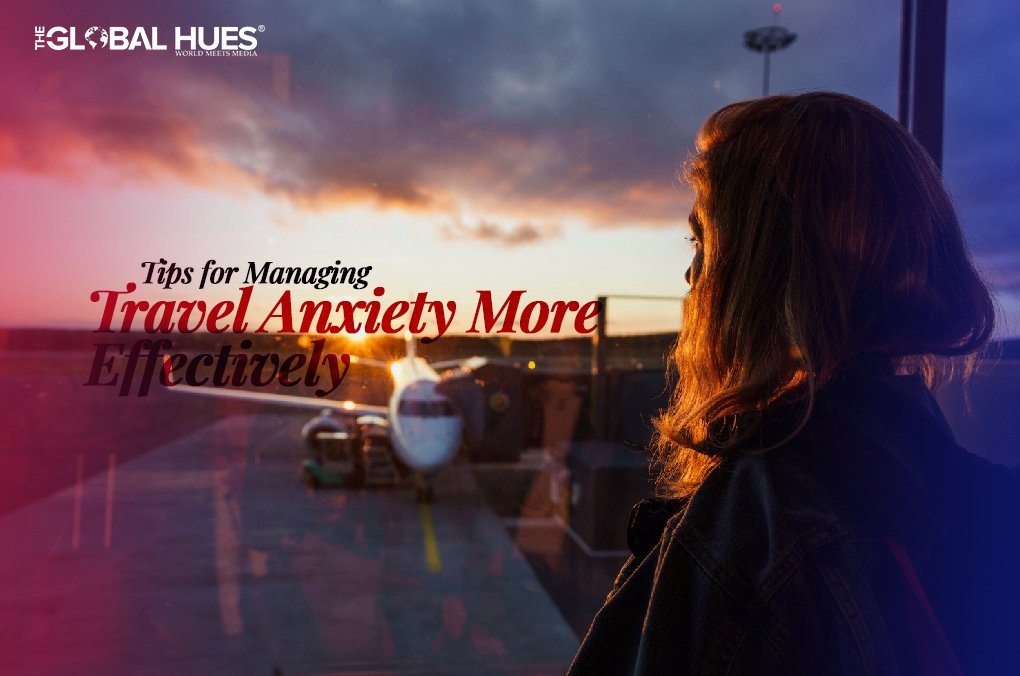(The article is developed in partnership with BetterHelp)
Travel can be both exhilarating and daunting. Trips often involve a mix of excitement and uncertainty. Whether it’s for work, study, or personal reasons, stress can detract from the joy of traveling. Most of us long for the journey without the travel anxiety.
Stress can be even more pronounced when it involves a move. Relocating to a new place can involve not only travel anxiety but adjustment stress as well.
What are the practical strategies for managing travel anxiety and what can we do if we need some help?
Understanding Travel Anxiety
Travel anxiety, also known as trip anxiety or journey anxiety, is a common experience. It’s characterized by feelings of apprehension, worry, or fear related to travel.
For many individuals, the thought of navigating new environments can trigger anxiety symptoms. Trips necessitate dealing with logistical challenges. Travel involves being away from the comforts of home. Even the most adventurous people can feel the pressure and stress of the unfamiliar.
Travel anxiety varies in intensity and duration. But, it can greatly impact your enjoyment and ability to adapt to new places.
Many people choose to avoid travel as a way to avoid these unpleasant sensations. Unfortunately, making that choice blocks people from the benefits as well.
Can we have the best of both worlds?
Preparing for the Journey
Effective preparation is one way to alleviate some travel anxiety. Certain initial steps can foster more confidence and security during the process.
For instance, if you are planning a trip to Hilton Head, some proactive steps can include researching the destination, familiarizing oneself with local customs and transportation options, and creating a detailed itinerary. These concrete actions can help reduce uncertainty and increase feelings of preparedness.
Additionally, packing essential items, including comfort objects or relaxation aids, can provide a sense of reassurance.
Other common tips for managing feelings of anxiety include:
- Practicing good self-care around diet, sleep patterns, and time to relax.
- Breath work or breathing exercises when stress mounts.
- Resist the urge to rely on substances like alcohol or too much caffeine.
- Let go of perfectionism. Allow your best to be good enough.
- Use a journal to track stressors and appreciate your progress.
- Talk it out with friends, family, or a qualified therapist.
Travel anxiety often involves fear of the airplane or flight.
What then?
Fear Of Flying
Many people have a fear of flying. If you experience this type of challenge, there are some specific tips that may help.
Get Practical: reassure yourself with some hard data on the safety of flight. Remind yourself that accidents are rare with frequent pep talks.
Try facing your fears: instead of avoiding flying at all costs, consider taking a few short trips. For some people, seeing there is no disaster can alleviate some of their fears. If this feels too out of reach, try watching videos about flight, playing with flight simulators, or listening to audio of planes.
Give yourself an activity during flight: puzzles, books, movies and music can help distract us when we’re anxious.
Don’t repress acute fear responses: if fear rises during flight, let yourself feel it while reassuring yourself that it’s normal. Calling the fear by name can be helpful for some people.
Talk to your doctor: medications can be taken acutely if your travel stress has you grounded.
These tips may work for any type of travel from vacations to longer stays. If your journey is the start of a new life in a new land, however, you may have some specific concerns.
The Stress Of Relocation
We’re living in a global world. Many people find themselves faced with relocation for work or a relationship. There is often a mix of fear and excitement associated with this major change. It involves building a whole new life.
Moving across the country can be stressful enough. However, global or international moves bring even more uncertainty.
There’s planning to be done, cultural adjustments to navigate, social concerns, and often a language barrier.
Navigating Cultural Adjustment
One of the most common involves the process of cultural adjustment. This is often called ”culture shock’‘ and is prevalent among expats. Adapting to a different cultural environment involves more than just mastering the language. There are new social norms to understand. Your new home may spark a fundamental shift in perspective and mindset.
People can find themselves grappling with feelings of culture shock, homesickness, and identity confusion as they navigate the complexities of a new cultural landscape.
Language Barrier and Communication
One of the most immediate challenges faced by expatriates is the language barrier. Communicating effectively in a foreign language can be daunting, particularly in professional or social settings.
Expatriates may experience frustration, embarrassment, or feelings of isolation when unable to express themselves fluently or understand others. Overcoming the language barrier requires patience, perseverance, and a willingness to learn. Language classes, immersion programs, or language exchange partnerships can help. These activities can also break the isolation barrier and help expats make friends.
Most people eventually adjust, make friends, and form a satisfying life.
Practicing Mindfulness and Relaxation Techniques
Adding mindfulness and relaxation techniques to one’s travel routine can help manage stress and anxiety. Simple practices such as deep breathing exercises, progressive muscle relaxation, or guided imagery can promote a sense of calm and relaxation, making the journey more enjoyable and manageable.
Also, mindfulness activities like meditation or journaling can help people stay grounded and present.
Seeking Support and Connection
Connections with loved ones can provide valuable emotional support before and after travel. This can be particularly useful for people relocating.
Sharing concerns, fears, and excitement with trusted individuals can help alleviate feelings of isolation and loneliness. Keeping your familiar connections can foster a sense of belonging, even in unfamiliar places. Also, online groups, support groups, or counseling can offer useful resources. They can support managing travel anxiety and adjusting to life in a new country.
Enjoy The Journey
Travel is a transformative journey filled with opportunities for growth, exploration, and self-discovery. While travel anxiety may accompany the process, it is essential to remember that it is a natural response to change and transition.
By understanding the triggers of travel anxiety, preparing effectively, practicing mindfulness and relaxation techniques, and seeking support when needed, individuals can navigate the emotional journey of travel.




